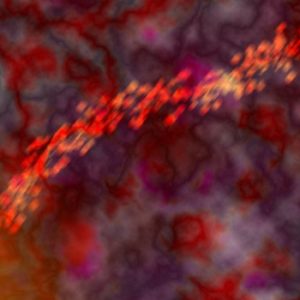Art forgery may have finally met its match, thanks to a new form of art authentication that uses synthetic encrypted DNA. Professional art authenticators have increasingly begun to refrain from endorsing authentic works for fear of being sued if the works are discovered to be fakes; the new technology makes that process simple and affordable.
For the cost of $150, an artist can attach a sticker with a series of microfluidic channels containing the authentication DNA. Each channel contains a unique fingerprint that can be sampled for up to 100 years and compared against an encrypted database possessed by the art insurer. Known as i2M, the principle of the system was first suggested by scientist Martin Tenniswood while he was director of the Cancer Research Center in New York.
Tenniswood adapted the existing process of DNA amplification (which uses a process called the polymerase chain reaction) to produce multiple copies of a particular DNA sequence and then place them in the microfluidic channels. Although the i2M system can only be used for up to 100 years, future designs will only be limited by the lifespan of DNA, which is in the hundreds of thousands of years.
Tenniswood commented on his idea, “Everybody understands the rigor of DNA…it’s something we can get through the court system.” If the technology takes hold, art collectors could regain their confidence in the works being sold.
The i2M system is being developed by the research group Global Center of Innovation (GCI) in collaboration with art insurer ARIS. The authentication sticker only allows one use per microfluidic channel, but i2M estimates that authentications will happen every few years or more.
Tenniswood foresees better authentic technologies coming along in the near future, “This won’t be a static field. Somebody’s going to come up with a better technology in five to ten years time, I would suspect. This is the starting point for what I think could become a very large industry.”
Provenire is one of the firms that is starting an i2M-based business using its own proprietary verification database.
The Center for Innovation in Albany, NY has confirmed a handful of working artists who have agreed to participate in using the first iteration of i2M, but details on the encrypted database still need to be worked out.
Stay Connected